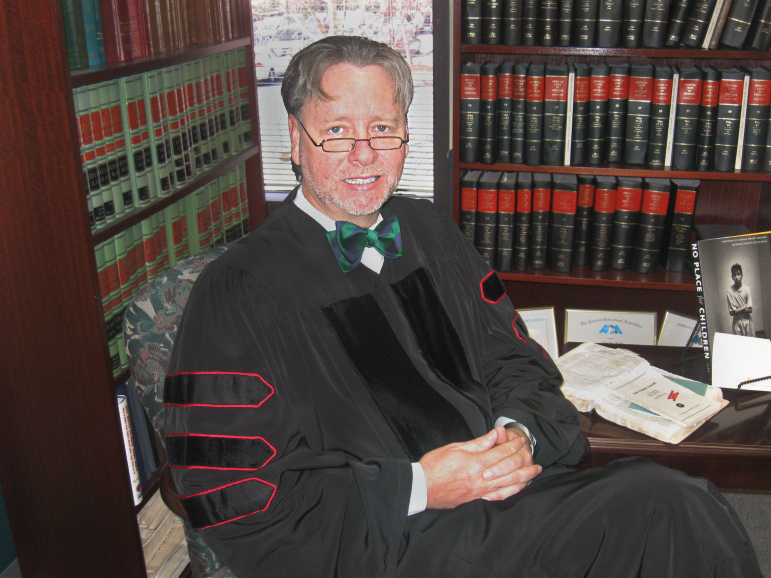 It was once said, “Never attribute to malice, that which can be reasonably explained by stupidity.”
It was once said, “Never attribute to malice, that which can be reasonably explained by stupidity.”
Several incidents from my adolescence come to mind when I am reminded of this quote, especially the one involving a group of us in the woods, starting a fire on the ground covered with dry pine needles. If that wasn’t stupid enough, one of my friends without warning threw several rounds of bullets into the fire.
We ran.
We heard the first “pop” and dropped to the ground.
After a few moments we got up and ran again until the next “pop.” This this time we stayed down — it was “pop” after “pop.”
When we didn’t hear any more “pops,” we looked back to see the smoke. The fire had spread and it was a matter of time before all the Georgia pines were on fire.
“What do we do about the fire?” one of my stupid friends yelled.
“I’m not going back there,” said another. All of us uttered sounds of agreement.
“We can’t let the woods burn,” said the first one. “The houses may catch fire.”
I hollered, “We have to call the fire department.”
“Are you crazy,” someone shouted back. “We’ll get caught for sure.”
“No one needs to know we started it. Follow me,” I told them.
It’s ironic how covering up one crime inevitably leads to the commission of another.
We ran out of the woods and up the street to Smith’s house. This couple had no children and both worked—an empty house with a telephone. We had enough sense in our furious panic to escape the random fray of bullets to call 911 — from another house!
The vulnerability and arrogance of youth kept us at the scene of the crime so we could watch the firemen stop the spread of the fiery destruction ignited by our boyish tomfoolery.
What we did was criminal no doubt — arson, criminal damage to property, and criminal trespass.
I oftentimes look back on that summer of ‘75 and admonish that foolish boy, saying to myself, “You fool!” But those thoughts are followed by a solemn prayer of thanksgiving for surviving the foolishness of my teenage years.
Adolescents are still under neurological construction and have difficulty translating their emotions into logic. They are impulsive, risk-takers and feel invulnerable — ingredients of a recipe for stupidity.
These neurological misfires do not excuse my adolescent crimes -- they only define the type of consequence. But where should the consequence originate — in a juvenile court or another forum?
While my bullet dodging escapade may have been deserving of a juvenile complaint had I been caught, there are some delinquent acts in which consequences are best served up by a parent, teacher, principal or a combination thereof — but not by a judge or his or her court personnel.
Zero tolerance policies in schools have distorted the lines between juvenile and adult courts by blindly referring students to the court system regardless of how minor the offense. These policies ignore the diminished capacity of adolescents specific to certain misdemeanor offenses.
Those legal scholars who dismiss the role of adolescent brain research at the front gates of juvenile justice miss the mark by analyzing its application in broad fashion — every offense. This broad analysis is reckless because it conjures up a fear that the diminished capacity caused by adolescent wiring trumps criminal intent, in every case no matter the seriousness of the offense, which arguably would bar prosecution of all juveniles.
Unlike the punitive role of adult courts, juvenile courts were created to protect youth through rehabilitative means. Criminal intent, or mens rea as we say in the legal world, remains an effective tool in juvenile justice to protect youth from wrongful prosecution — state intervention is wrong unless criminal intent is proven. Despite this requirement, juvenile courts are unique because we can find the requisite mens rea but conclude the kid is not delinquent. Why? Because kids are wired to make poor decisions of which some are described as “typical juvenile behavior.”
It is common for kids to get into fights, act disorderly, and even set fires to piney woods in Georgia, and this commonality is attributed to adolescent neurological misfires not deserving of state intervention. But despite what some may believe, it is not "typical juvenile behavior" to murder, rape, steal cars or burglarize homes. The seriousness of these offenses requires state intervention.
The role of the juvenile court defines when criminal intent is relevant — is this offense characterized as “typical juvenile behavior” attributed to the diminished capacity of kids to translate emotion into logic?
Zero tolerance policies in schools have become the “tail wagging the dog” — it sends many kids to court for acts resulting from their diminished capacity for which prosecution is unwarranted. Courts are burdened with these minor offenses that dilute its effectiveness when it comes to addressing the serious cases.
Zero tolerance policies attribute to malice what is caused by stupidity. It’s time we make plain in the law what most of us already know — some school offenses have no place in court, and are best addressed by schools, parents, or others.
